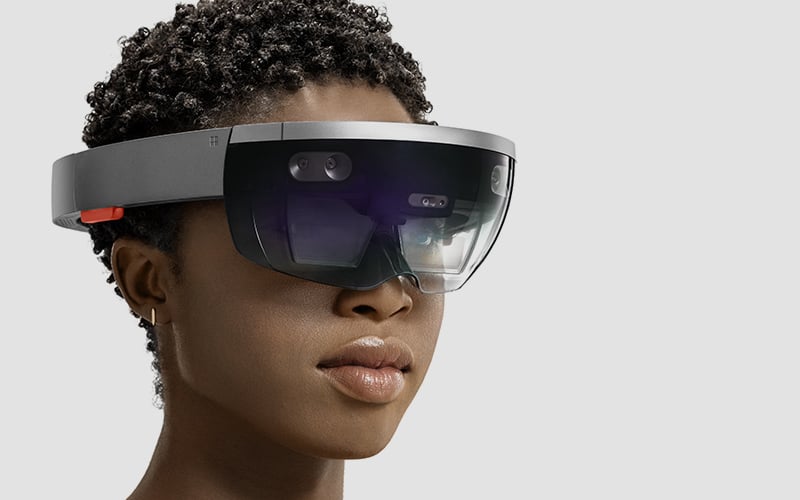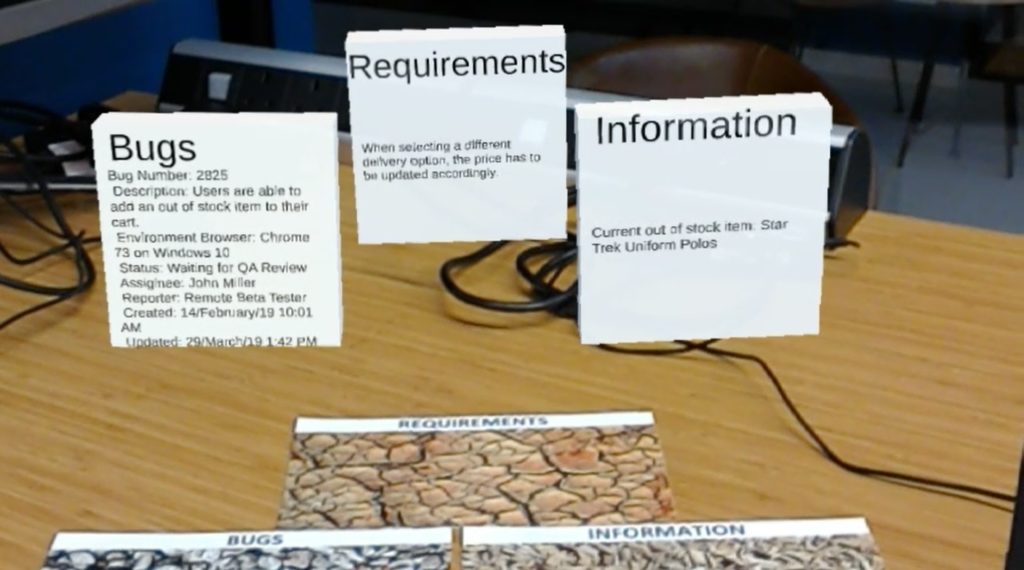Software testing is a demanding activity where testers must handle considerable volumes of information coming from a wide variety of sources in order for them to carry out their day-to-day jobs effectively. This influx and volume of information may cause what is known as ‘information anxiety’ [1].
This project builds upon previous work [2], [3] to investigate how context-relevant and just-in-time (JIT) information presented through augmented reality (AR) interfaces affects the testers’ productivity and performance while at the same time mitigating risks associated with information anxiety.
In order to investigate the above statement, a lab-based study was designed and carried out with twenty full-time software professionals. Participants who took part in this single blind study were randomly assigned to either the control group or the experimental group. The control group had access to context- relevant and just-in-time information through a second monitor, while the experimental group viewed the same information through HoloLens – an enterprise level AR headset (refer to Figure 1 and 2).
Testers in both groups had to perform exploratory testing on a newly released e-commerce site (System Under Test) which was injected with some bugs in the checkout process. Participants were therefore asked to focus their exploratory testing around that region. As participants exploratory-tested the system, specific context-relevant information was provided via the respective interface (i.e. either second monitor or AR headset). This information was based on findings from [3], in which information needs were studied empirically with practitioners.
Results show that the productivity levels of testers using AR interfaces for context-relevant JIT information were slightly lower when compared with testers using a second screen monitor. There are several factors leading to this finding, particularly the level of familiarity with using a second monitor to interact with information, as well as the novelty of AR headsets together with the interaction experience afforded. Cognitive workload during task performance was, on the other hand, similar for both groups, which provides an interesting insight into the potential of AR headsets for productivity tasks in this domain.


References
[1] M. Micallef, “Investigating Information Anxiety in the Maltese ICT Industry,” University of Malta, 2018.
[2] S. Borg, “Augmented Reality in Exploratory Testing Activities,” University of Malta, 2017. [3] S. Catania, “An Extensible Framework for Human Centred Software Testing,” University of Malta, 2017.
[3] S. Catania, “An Extensible Framework for Human Centred Software Testing,” University of Malta, 2017.
Student: Kurt Camilleri
Supervisor: Dr Chris Porter
Co-Supervisor: Dr Mark Micallef
Course: B.Sc. IT (Hons.) Software Development
